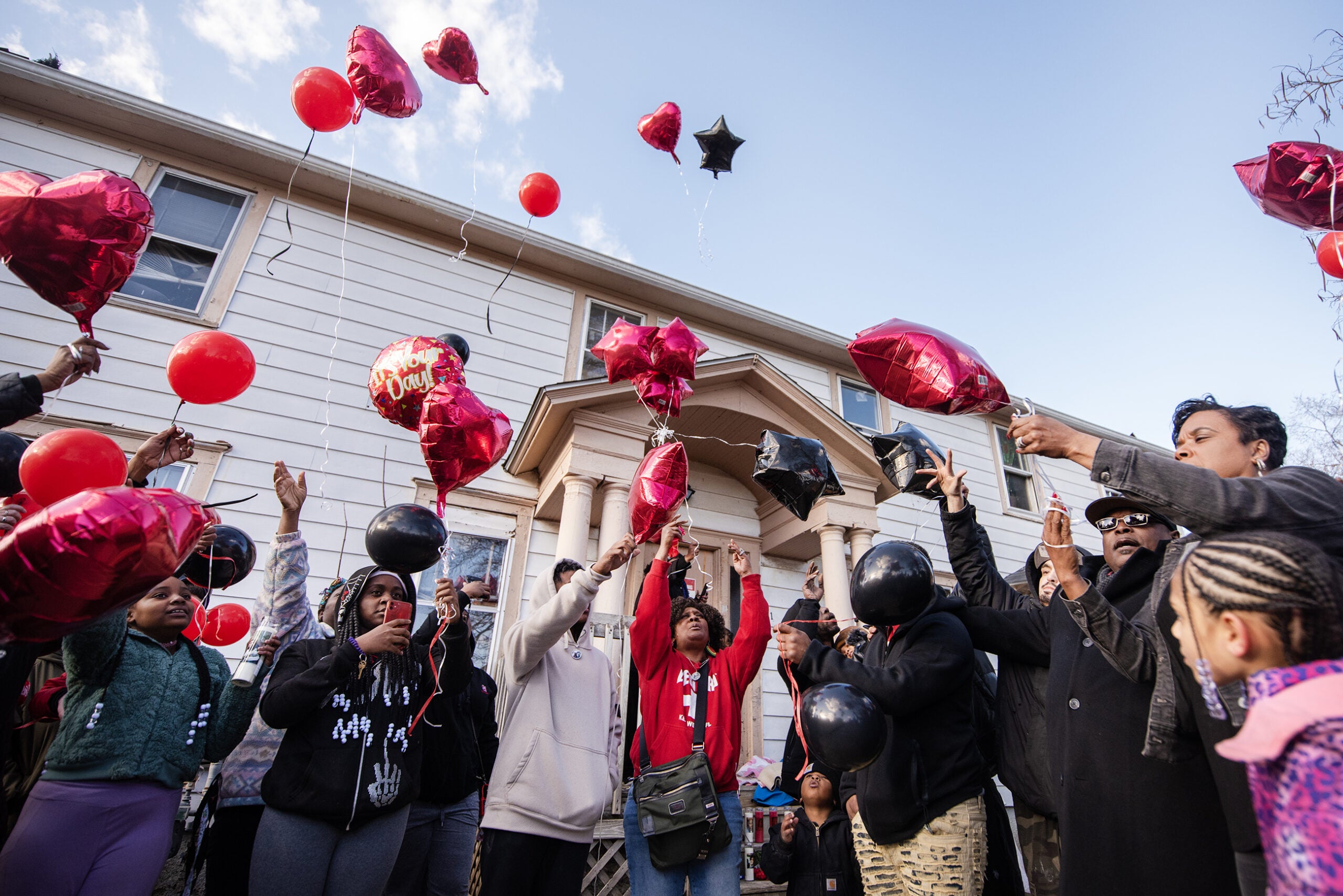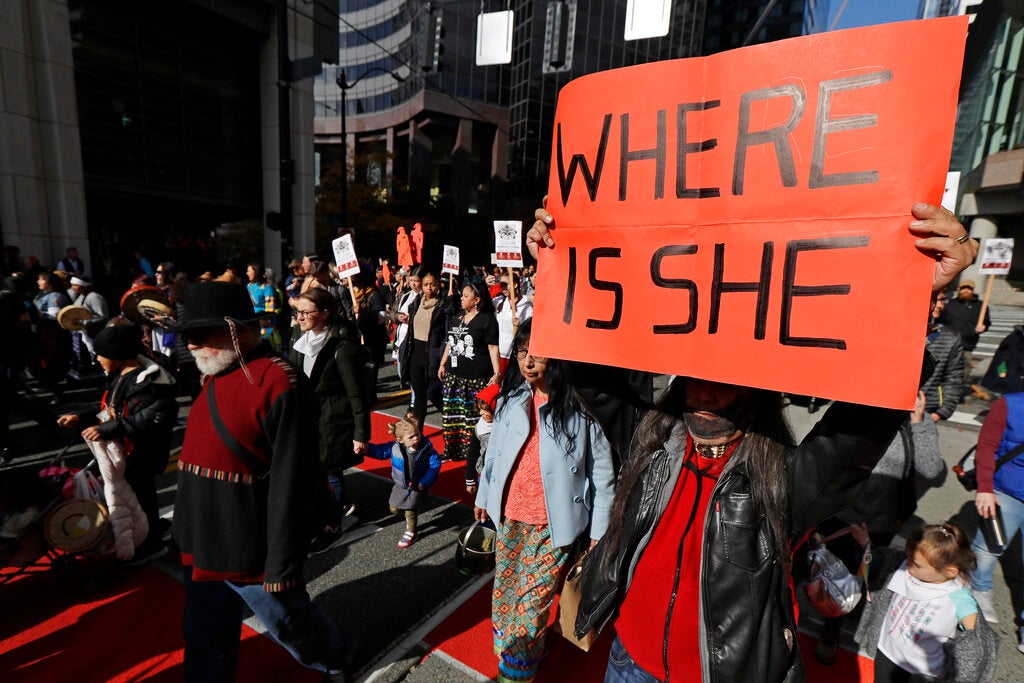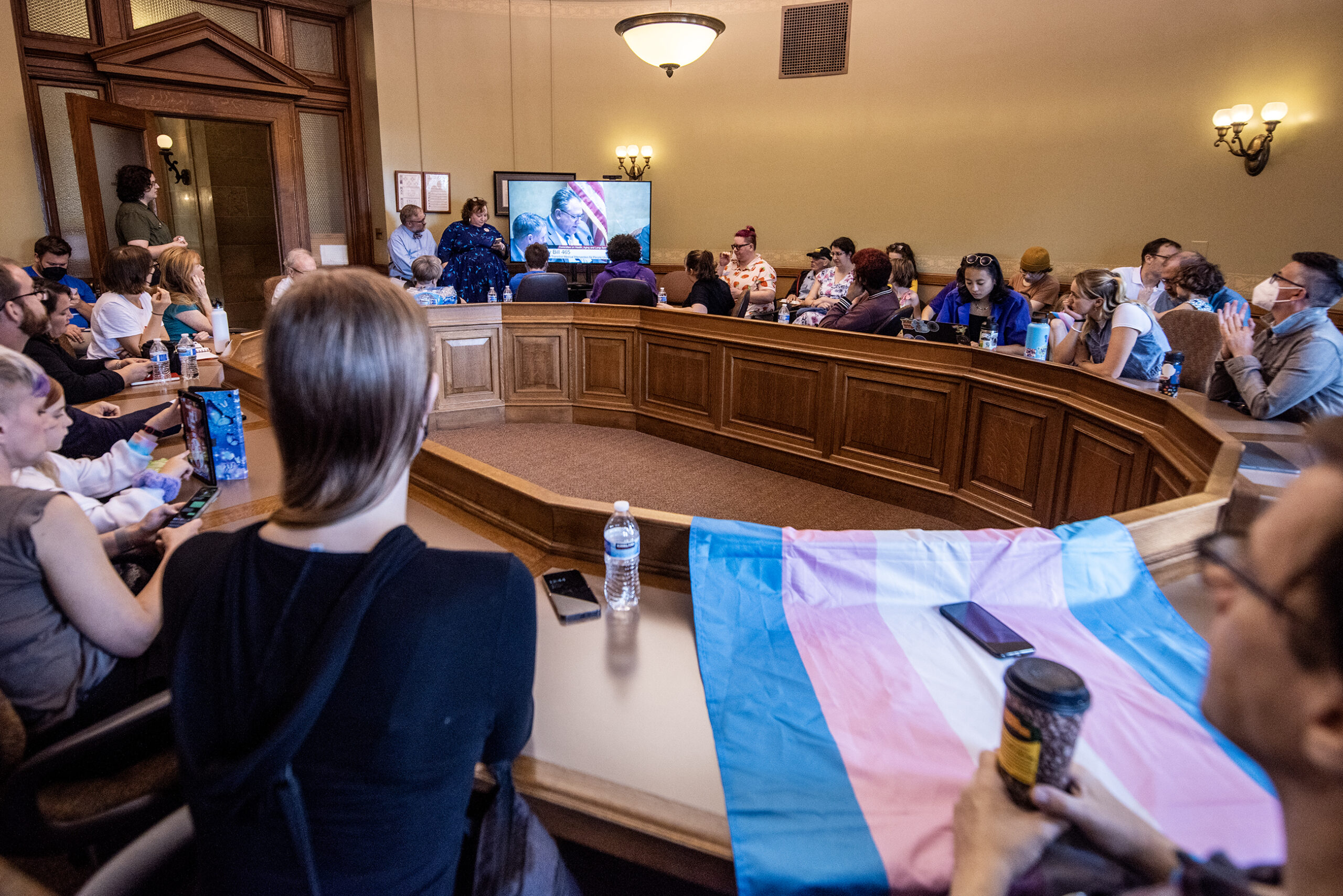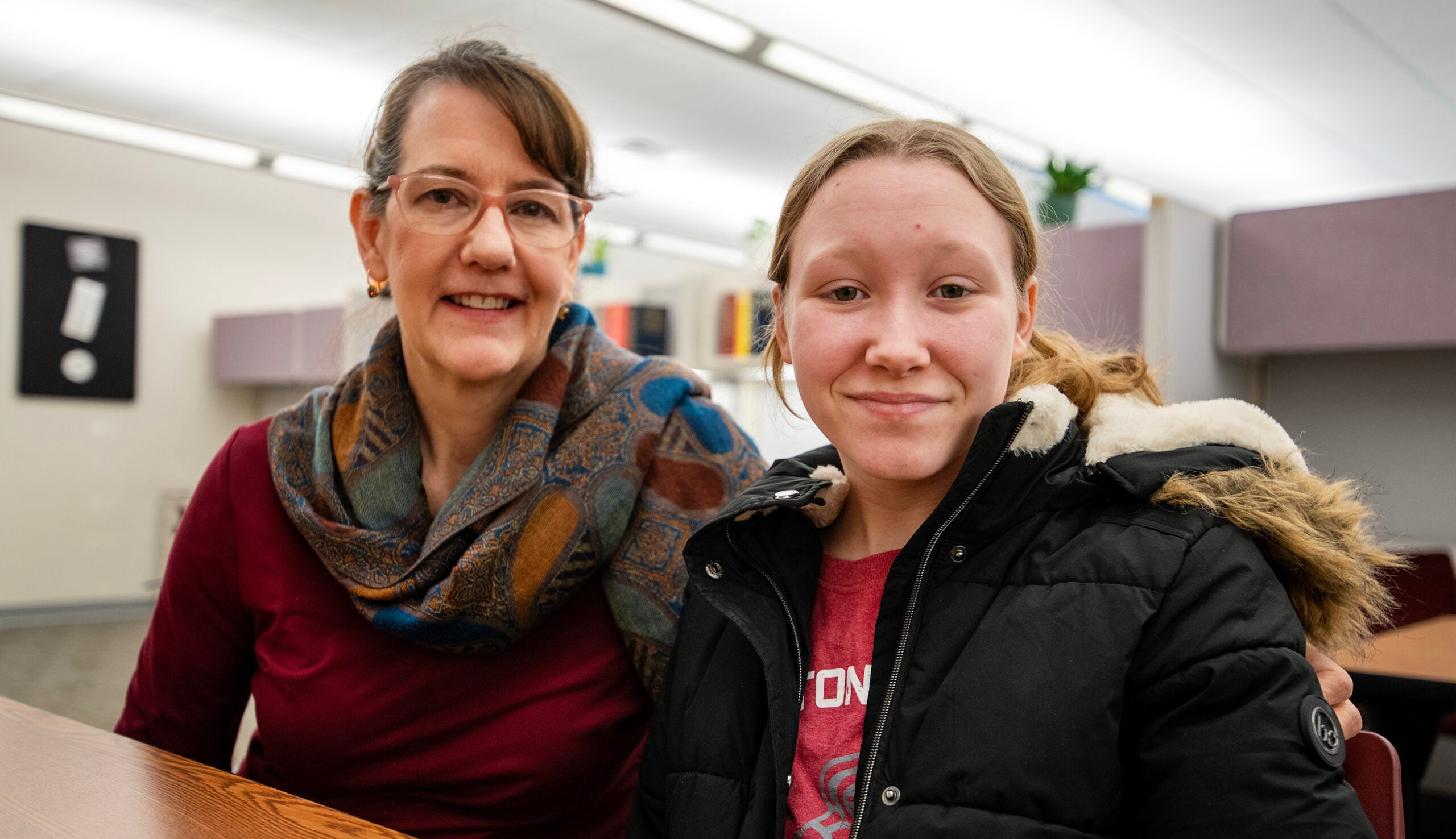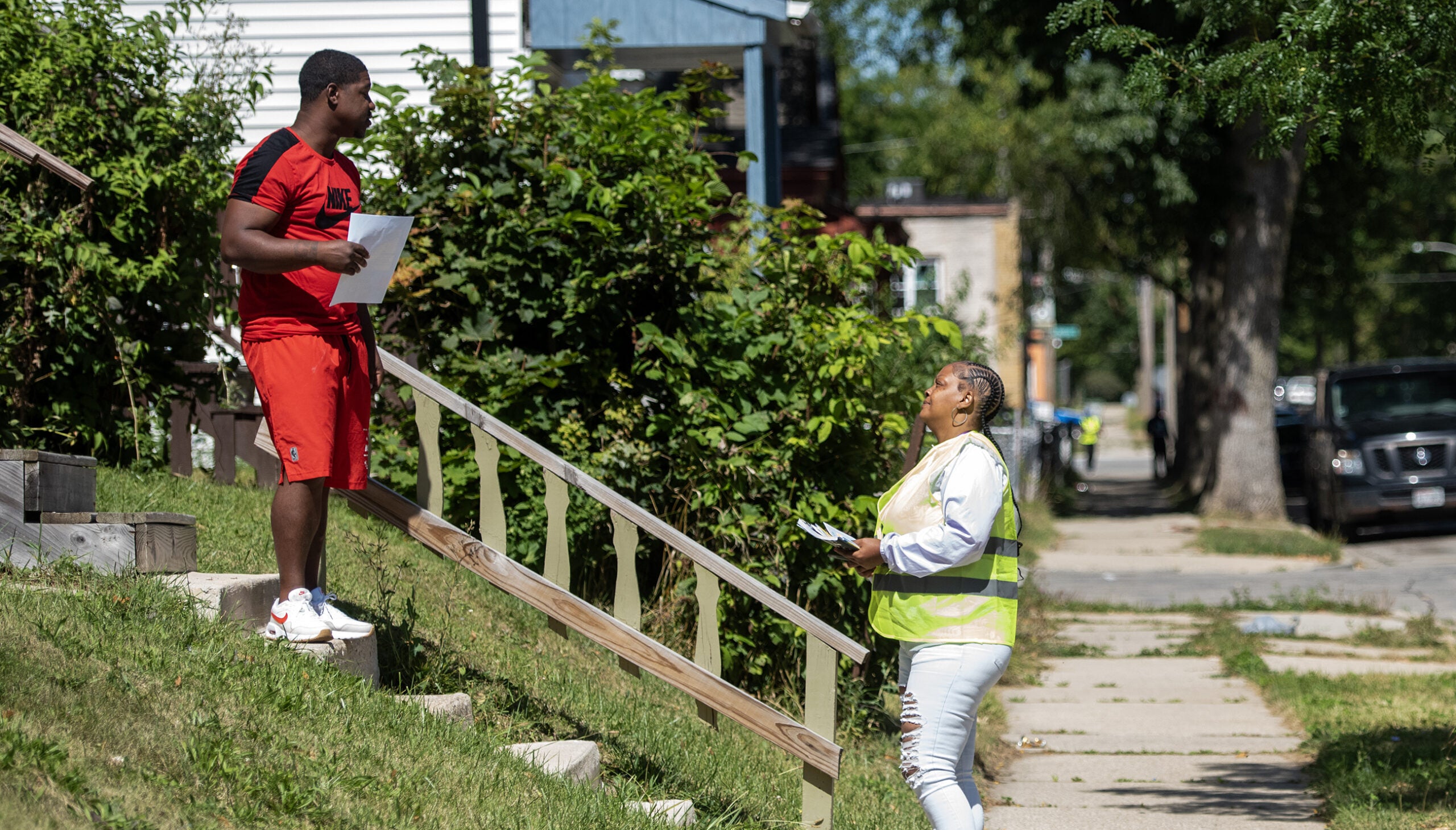Georgia Hill vividly remembers the last time she saw her daughter, Lasheky, in March 2023.
It was the day before Lasheky’s 46th birthday. Lasheky swung by her mother’s Racine apartment for a short visit. Georgia fixed her daughter a plate of food. A little before noon, Lasheky headed out.
Midway down the hallway, she turned around and said something to Georgia, but Georgia didn’t catch it, and Lasheky continued on.
Stay informed on the latest news
Sign up for WPR’s email newsletter.
“That was the end of my child. You understand what I’m saying?” Georgia said recently, sitting on the same couch that, one year ago, she had sat on with her daughter.
Soon, Lasheky wasn’t responding to messages. She didn’t respond to any social media posts celebrating her birthday. And she didn’t pick up the phone when her children started calling.
That’s when Georgia knew something was terribly wrong. She has spent the year since trying to figure out what happened.
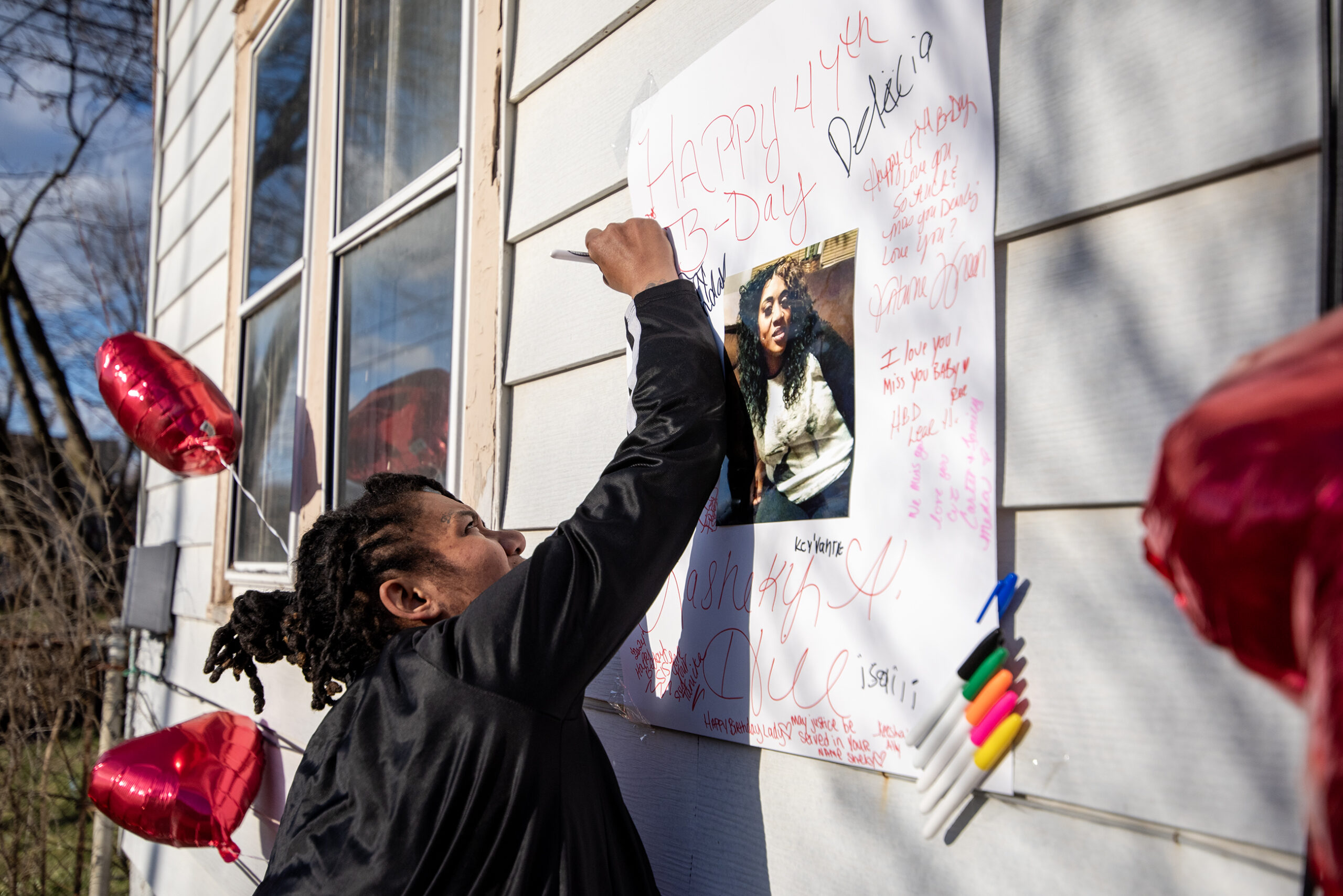
That included sharing her story at the Wisconsin State Capitol in support of a bill to create a statewide taskforce aimed at addressing on missing and murdered African American women and girls.
The bill was sponsored by Democratic state Rep. Sheila Stubbs, a Black lawmaker from Madison who said she wrote the bill because she wants to know why the state she lives in owns a harrowing distinction. Wisconsin has, by some measures, led the nation in homicide rates for Black women.
“Wisconsin is the worst state to raise a Black family. But I live here with my family,” she told WPR.
In a Legislature where the GOP holds big majorities, Democratic bills often go nowhere, but Stubbs worked to get Republican onboard. During committee hearings, her Republican colleagues gave emotional speeches of support. The bill passed unanimously out of committees, and received a voice vote at the Assembly.
At the eleventh hour, though, the bill failed. The Senate declined to take it up on its final day of business.
The process, Stubbs said, spoke to the best and worst parts of legislative politics. She says she’ll bring the bill back next session. But she blamed Madison politicking — and racial politics — for its failure this time around.
“It makes me feel as though there’s only certain victims that certain people in this building want to protect,” she said.
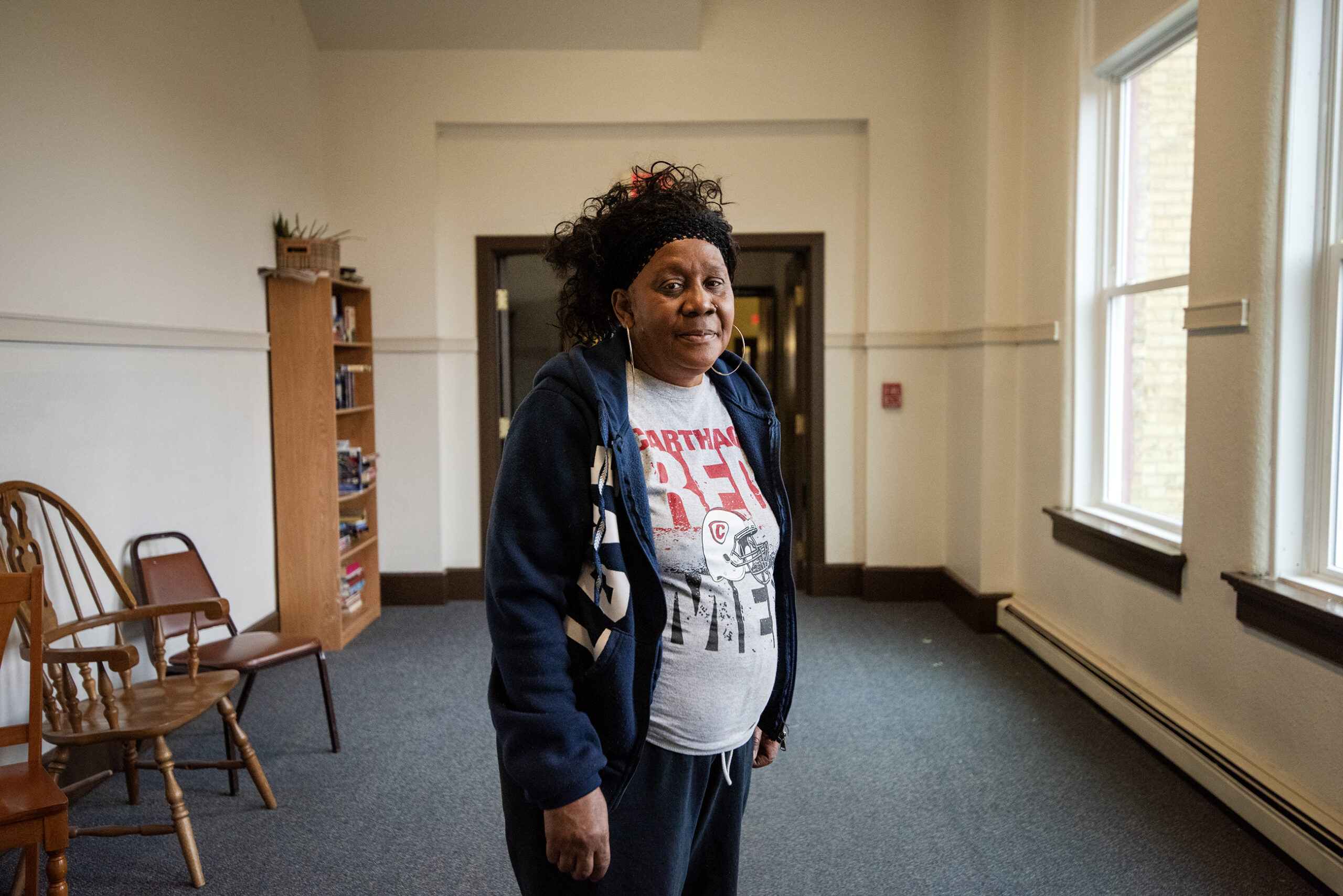
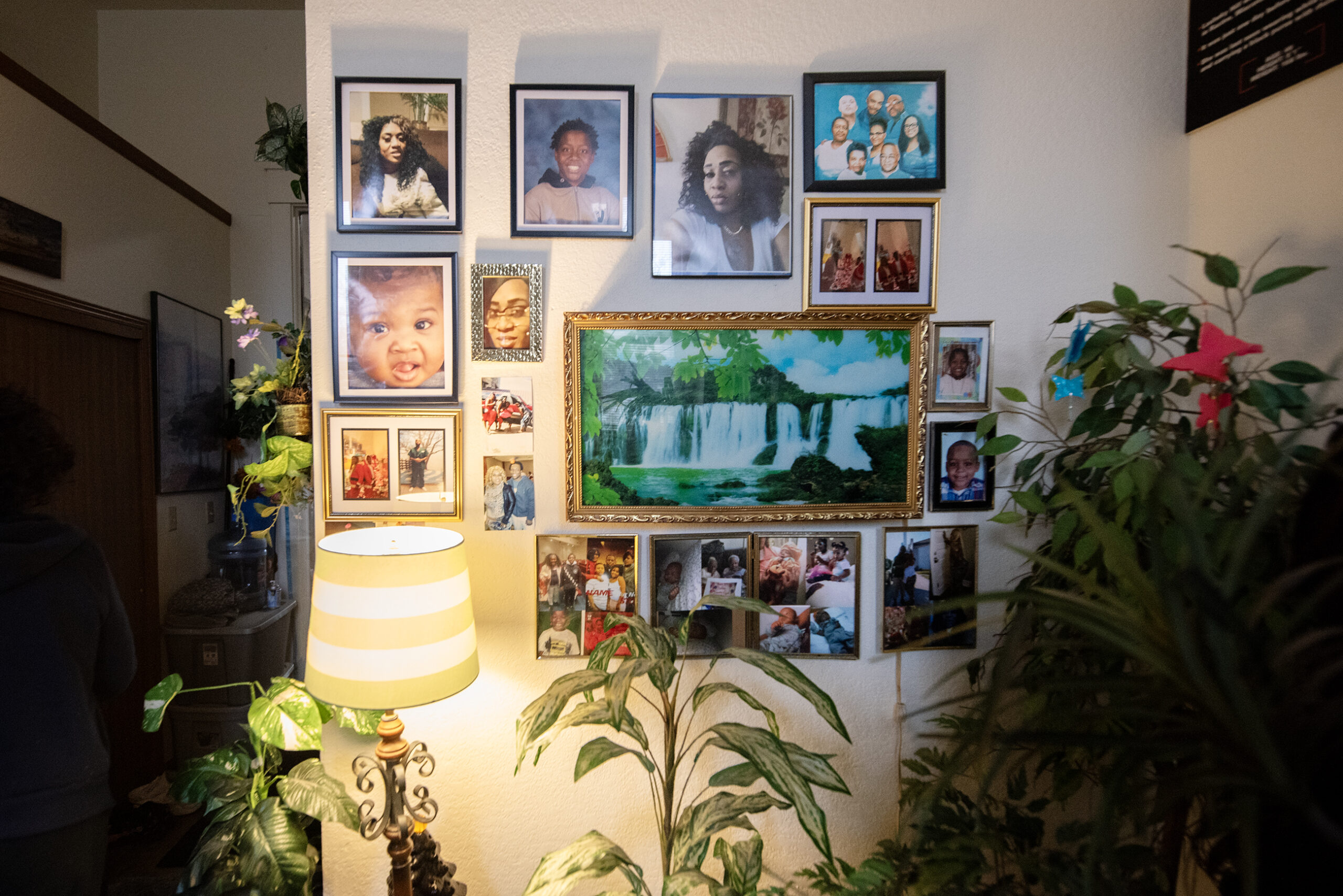
Despite bipartisan backing, task force bill hit wall in Senate
Nationwide, Black women and girls are killed at disproportionate rates: about four times more than white women. A 2022 investigation by The Guardian found that an average of five Black women and girls were killed each day in 2020.
While that was partly due to a rising homicide rate among all demographics, the spike was especially sharp for Black people in general, and Black women faced a rate twice as high as white women.
The homicide rate for Black women is highest of all in Wisconsin, where the rate doubled between 2019 and 2020.
Black women, like Lasheky Hill, also comprise 36 percent of missing women and girls nationally, but make up less than 14 percent of the general population.
Stubbs believes that data is incomplete. She contends the problem is exacerbated by relative apathy from law enforcement, the news media and the public. Advocates argue the scale of the problem is treated as unremarkable, or solvable through a broader approach to reducing violence for all people, rather than by targeting the specific causes of violence in specific communities.
Stubbs’ proposed task force would have worked to collect better data about violence against Black women and girls, study the causes and develop solutions to reduce the violence. It was to have been composed of lawmakers, law enforcement, community leaders and advocates.
“All I want to do is get the infrastructure done, to learn what is happening when these families are reporting that their daughter or their mother is coming up missing,” said Stubbs.
Rep. Michael Schraa, R-Oshkosh, and Sen. Jesse James, R-Altoona, signed on as co-sponsors. They both pointed to their personal relationships with Stubbs and a desire to work across the political aisle. They also cited the bill’s zero-dollar price tag as reasons for signing on.
“It should be about treating human beings as human beings. And let’s push the politics aside and do what’s best for our state and especially for any of those families that have missing and murdered African American women and girls,” said James.
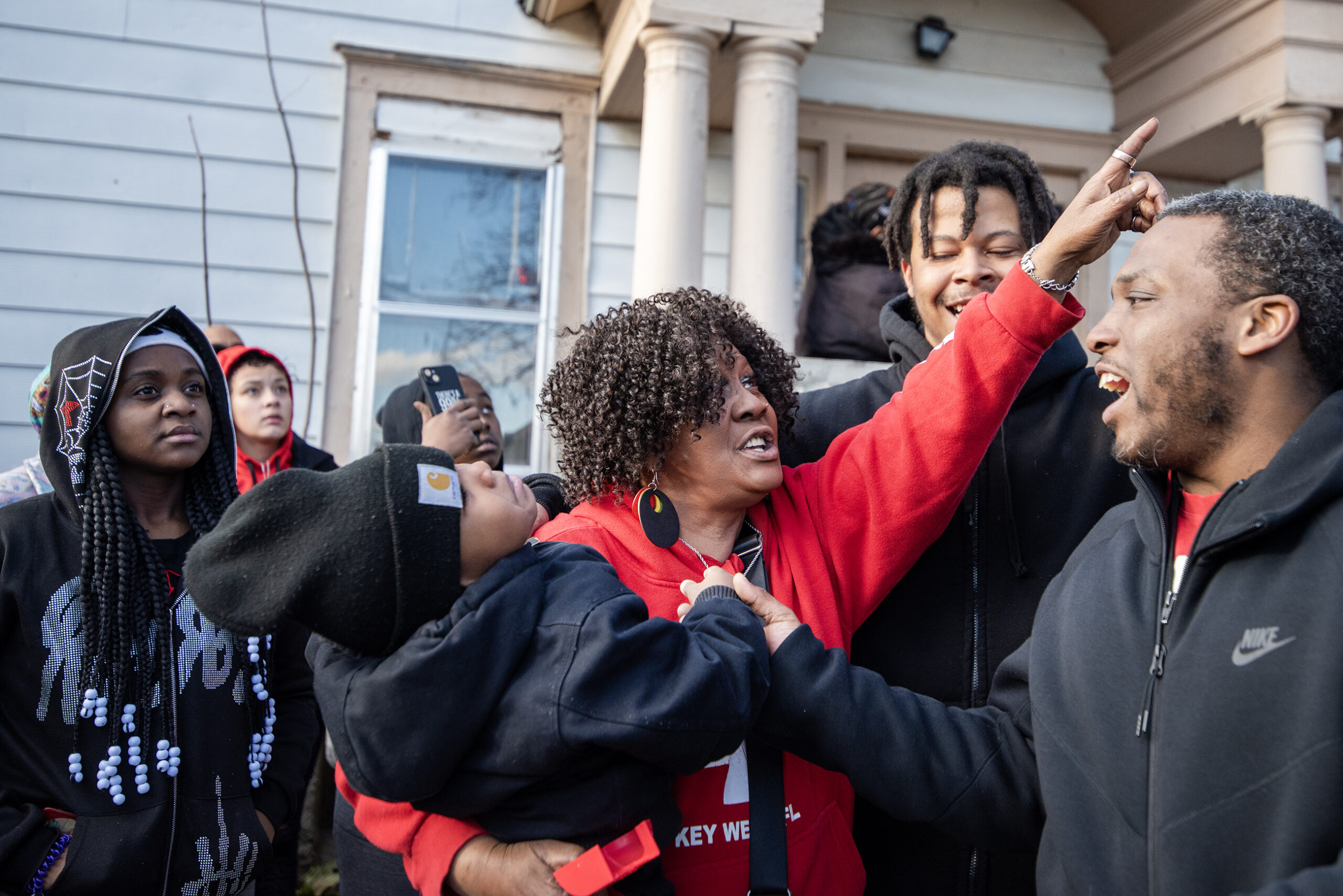
But the proposal received pushback. In a statement, Sen. Duey Stroebel, a Republican from Saukville, said he took issue with prioritizing one group of crime victims over others.
“I believe that every person who is missing or murdered deserves equal justice under the law,” Stroebel said. “I have a difficult time legislating in a way that allows government to prioritize justice based on a victim’s race or gender.”
“While I believe the authors of this bill are well-intentioned,” he continued, “I personally have reservations about creating a state government task force that focuses on only one facet of a much broader societal problem.”
Indeed, the Department of Justice has authority to establish such a taskforce without legislative input. It did just that for a similar taskforce to investigate missing and murdered Indigenous women and girls, after a related bill failed in the Legislature four years ago. A press release at the time described the issue as “too important to wait until the next legislative session to take action.”
A spokesperson for Attorney General Josh Kaul did not say whether that agency would take the same steps here.
“More needs to be done to address violence, and in particular violence against women, in our state,” the statement reads in part. “From our experience with the Missing and Murdered Indigenous Women and Girls, it’s clear that a meaningful investment in resources is needed. It’s critical that the Legislature invest in efforts to reduce violence.”
‘They see me out here fighting for my child’
The status of Lasheky Hill’s case has remained much unchanged in the last year. Her case file in the National Missing and Unidentified Persons System contains just a few ominous sentences:
On 3/26/23 at approximately 10:45 pm Lasheky Hill was picked up from her residence by a known male acquaintance and driven to his residence in the 1300 block of Douglas Avenue which is in the City of Racine. No one has seen or heard from her since.
Her mother, Georgia, now cares for Lasheky’s youngest son, and said she takes care to remind him, and Lasheky’s young grandchildren, about who her daughter was before she disappeared — an outgoing, hopeful person who loved her family, she said.
She said those family members motivated her to testify on behalf of the taskforce bill.
“We have each other. That’s the only way we can survive,” she said. “That gives them the hope, so long as they see me out here fighting for my child … That’s what keeps me motivated, because I’m gonna fight for them babies.”
In late March of this year, a few weeks after the state Senate gaveled out of session for the year, Lasheky Hill’s family marked the one year anniversary of her disappearance — and what would have been her 47th birthday.
They gathered outside her home on Racine’s north side. Georgia Hill asked everyone to wear red and black, and to bring red and black balloons.
“That was kind of me and her colors,” she said.
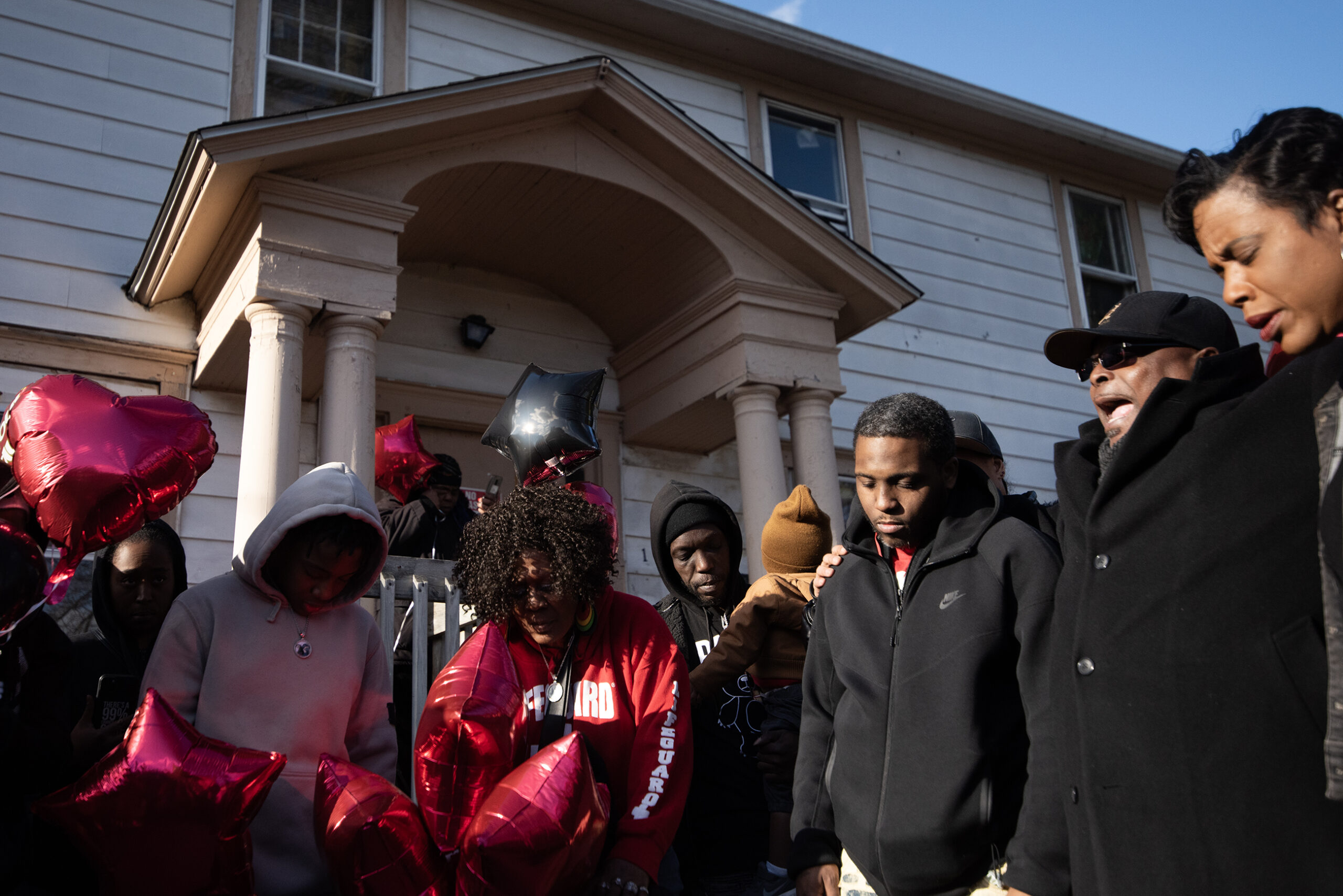
Pastor Frank James II led the group in prayer.
“We’re not going to stop, we’re not gonna give up, but we will continue to fight, Lord God, until she’s home,” he said.
Then they released the balloons. Some floated up to the sky. On that cold, windy day, others became stuck in the naked branches of a tree.
Looking skywards, Georgia remarked that it was like her daughter was trying to stay behind — with her family.

Wisconsin Public Radio, © Copyright 2025, Board of Regents of the University of Wisconsin System and Wisconsin Educational Communications Board.
